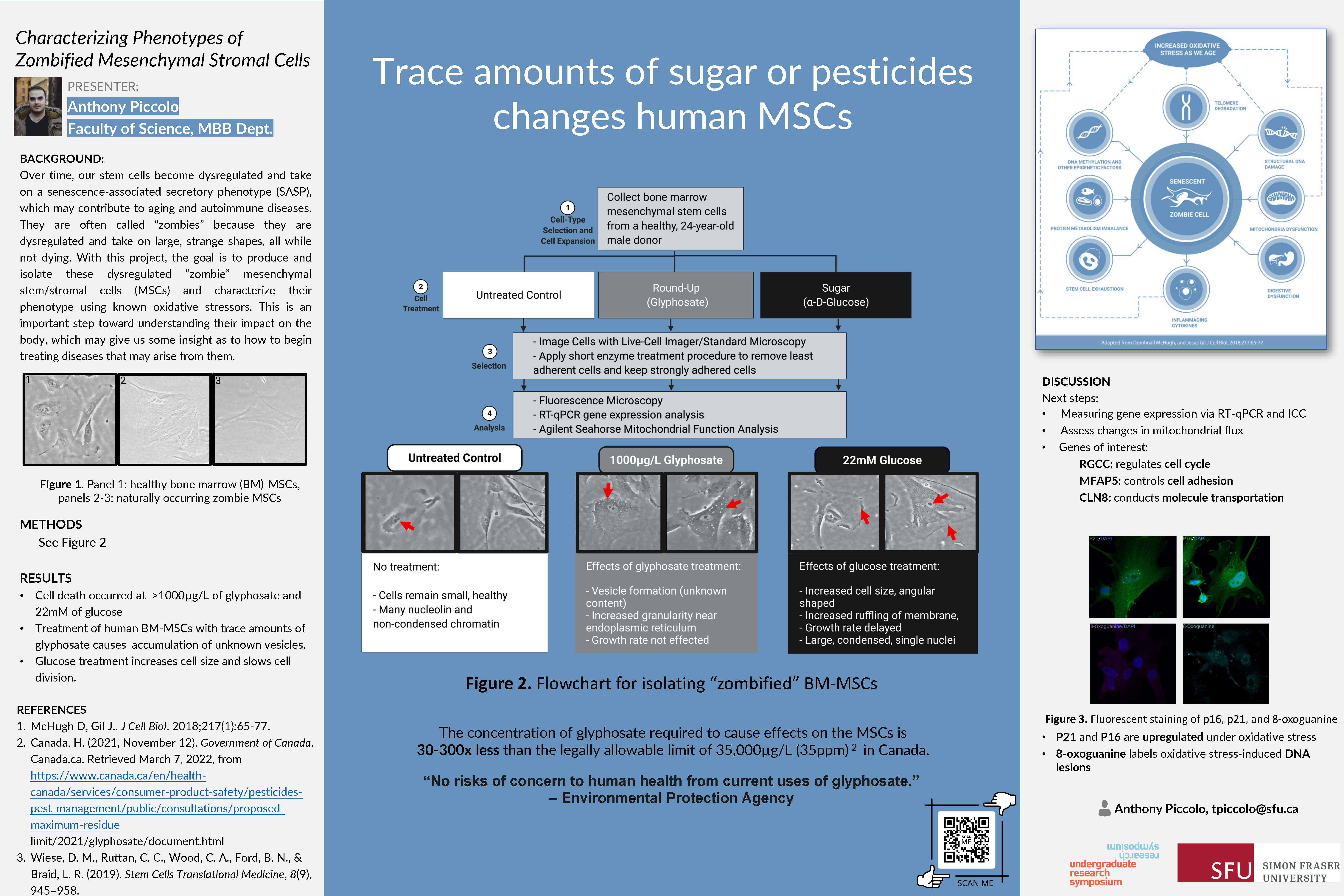Characterizing phenotypes of zombified mesenchymal stromal cells
Main Article Content
Abstract
The consequences of physiological aging are an unfortunate but necessary part of life, but why do some people develop aging-related diseases prematurely? Recent studies have shown that there is a population of cells, which are defined as zombie cells, that fail to be cleared naturally from the body and enter a non-proliferative state that is highly inflammatory. This state is called a senescence associated secretory phenotype (SASP) and may be a driver of auto-immune and aging-related degenerative disease. Our lab works with mesenchymal stromal cells, which are a specialized, heterogenous multipotent cell type found in perivascular and stem cell niches throughout the body.
My research has shown that MSCs, naturally and through the exposure to oxidative stressors, can enter a state of zombification, which has been characterized as a non-proliferative state with altered physical intercellular interactions, while remaining metabolically active. The goals of this project are to show that this unique phenotype has SASP characteristics, which means it has qualities that may cause inflammation and a dysregulated metabolism, as well, can be induced prematurely through chronic exposure to known oxidative stressors such as the pesticide Round-Up, and high glucose diets. From these treatments, I will characterize the resultant phenotypes by measuring the expression of a set of SASP-related genes via RT-qPCR to determine whether the treated cells take on a dysregulated gene profile. Using live cell-imaging and fluorescent dyes, I will also document any unique intercellular dynamics that occur with this phenotype.
Faculty Supervisor: Dr. Lorena Braid, Department of Molecular Biology and Biochemistry, Simon Fraser University
Article Details

This work is licensed under a Creative Commons Attribution-NonCommercial-NoDerivatives 4.0 International License.

